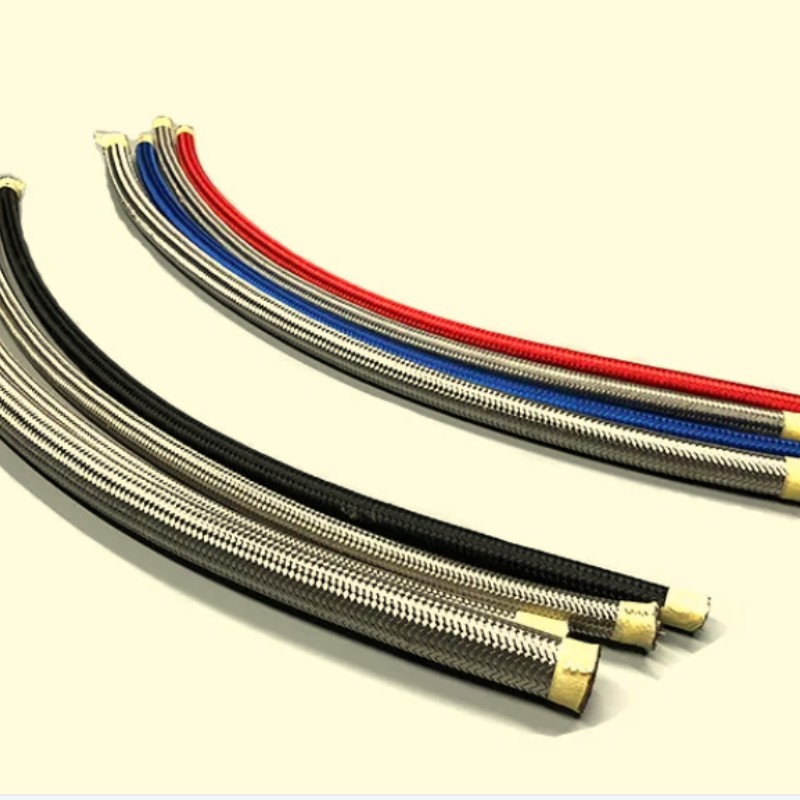Th8 . 19, 2024 16:59 Back to list
MSHA Certification for Hydraulic Hose Manufacturing Facilities and Compliance Standards
Understanding CE Certification for MSHA Hydraulic Hose Factories
In the modern industrial landscape, ensuring safety and compliance with regulations is paramount. This is especially true for industries that utilize hydraulic systems, such as mining and construction, where hydraulic hoses play a critical role in equipment functionality. Among the various certifications that factories must adhere to, CE certification and compliance with the Mine Safety and Health Administration (MSHA) standards are particularly significant for manufacturers producing hydraulic hoses for these sectors.
What is CE Certification?
CE marking is a certification indicating that a product meets the essential health, safety, and environmental protection requirements set by the European Union (EU). For manufacturers of hydraulic hoses, obtaining CE certification involves rigorous testing and documentation to ensure that their products comply with relevant EU directives. This includes the Pneumatic and Hydraulic Equipment Directive, which sets forth requirements for equipment that operates under pressure.
CE certification not only facilitates market access to the European market but also conveys a commitment to quality and safety to end users. It assures customers that the products they are using meet high standards of safety and performance, which is crucial in high-risk environments such as mining.
MSHA Regulations
In the United States, MSHA regulations focus on maintaining safety and health standards for mining operations. Hydraulic systems are an integral part of mining equipment, and the hoses used in these systems must be designed to withstand harsh operating conditions. MSHA regulations apply to the materials used, the construction of the hoses, and their overall performance in a mining environment.
MHSA standards ensure that hydraulic hoses can endure the severe conditions faced in mines, such as exposure to high-pressure environments, extreme temperatures, and potential exposure to harmful substances. Manufacturers must ensure compliance with these standards to avoid issues that could lead to equipment failure or accidents.
ce certification msha hydraulic hose factories

Intersection of CE Certification and MSHA Compliance
For factories producing hydraulic hoses, navigating the requirements of both CE certification and MSHA compliance can be complex yet essential. Compliance with CE standards often complements MSHA regulations, as both frameworks emphasize safety and durability.
Manufacturers must establish a quality management system that adheres to both CE safety standards and MSHA guidelines. This often involves extensive testing procedures that evaluate the hoses’ resistance to abrasion, pressure, temperatures, and various environmental factors. Additionally, factories need to maintain thorough documentation and continuous quality assurance processes to demonstrate ongoing compliance with both certifications.
Market Implications and Advantages
Obtaining both CE certification and MSHA compliance grants the hydraulic hose manufacturers a significant competitive advantage. It opens up access to both European and North American markets, providing a broader customer base. Businesses that meet these stringent requirements can market their products as safe, reliable, and of high quality, fostering trust and loyalty among customers.
Moreover, compliance with these regulations can lead to reduced liability risks. In the event of a failure or incident, companies with comprehensive safety certifications can mitigate legal repercussions by demonstrating their commitment to safety standards.
Conclusion
As industries continue to evolve, the importance of adhering to safety and compliance standards like CE certification and MSHA guidelines cannot be overstated. Hydraulic hose manufacturers must prioritize obtaining these certifications to ensure the safety of their products, protect their market access, and enhance their reputation in the industry. By doing so, they not only contribute to safer working environments but also position themselves as leaders in quality and innovation within the hydraulic systems market.
-
Best Four Steel Wire Spiral Hose Hydraulic R12 – Durable High-Pressure Hose Manufacturer
NewsJul.08,2025
-
High-Quality 1/4 Hydraulic Hose – Soft, Flexible & Durable Rubber Hoses for Industrial Use
NewsJul.08,2025
-
1 1 2 Inch Hydraulic Flexible Hose - Durable, Reliable, High-Pressure Solutions
NewsJul.07,2025
-
High-Quality 1 2 Rubber Hose - Durable, Flexible Hydraulic Solutions
NewsJul.07,2025
-
Discover SAE Hydraulic Hose Types - High Quality & Durable Hoses from Leading Factory Supplier
NewsJul.06,2025
-
High Pressure Wire Hydraulic Rubber Hose Supplier Durable & Reliable 1SN Hose Solutions
NewsJul.06,2025
